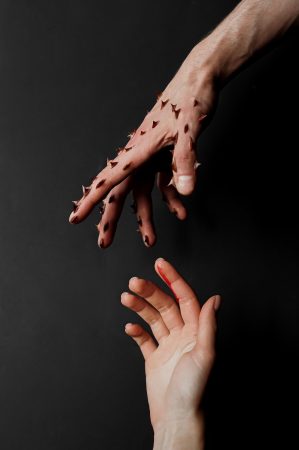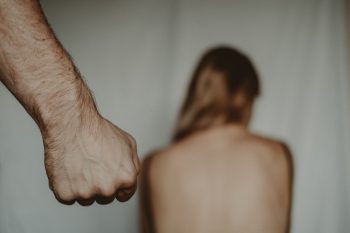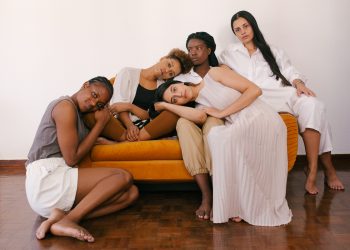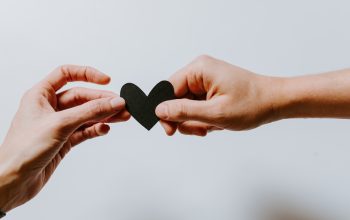News of South Africa’s murder rate having dropped 3.1% in Q2 of 2023 is no reason to celebrate – particularly in light of the fact that 895 women and 293 children were murdered in that 90-day period.
That’s 20.6% more children and 4.7% more women murdered than in the same period last year – with instances of attempted murder of women rising by 20.2% and 15.3% amongst children.
There were over 12 800 cases of assault with intent to commit grievous bodily harm (GBH) against women (up 9.7%) and children (down 6%) and attempted sexual assault increased by over 22%. – all in just 90 days.
We are a country where women and children are at war – a woman is killed here every four hours and, according to the Centre for Constitutional Rights, the femicide rate in South Africa is five times the global average.
There are many organisations in South Africa working hard to clamp down on gender-based violence (GBV), offer sanctuary to victims and help them reclaim their lives after the trauma – many of which are led by women.

Pexels
Women at the frontlines of GBV in South Africa
FAMSA Knysna is affiliated to the FAMSA national movement, with offices in Plettenberg Bay and Knysna. The organisation has offered counselling services to couples and families in the area for over 30 years.
“With the increased incidence and focus on GBV, FAMSA has initiated specific services for families affected by GBV. FAMSA has a Victim Empowerment Program focusing on victims of crime and violence, which includes GBV,” explains Teresa Angless, Senior Social Worker at FAMSA Knysna.
“We offer training to first responders and professionals on Intimate Partner Violence (IPV) and GBV, as well as counselling services to those who are directly impacted by GBV and IPV, as well as their families”.
Angless says the reality of working in the field of GBV is that the FAMSA team is confronted daily by tragic accounts of violence perpetrated against victims, often by those who supposedly love them.
“We are also exposed to the frustrations of a police and legal system that often fails victims. Victims are still not readily believed and sadly, too often, victims are still blamed. The legal system is often unable to charge perpetrators and keep them off the streets”.
She says the reality is that many rape survivors are raped by a man out on bail and have to face the perpetrator still living in their street or neighbourhood.

Pexels
Bernadine Bachar is the Director of the Saartjie Baartman Centre for Women & Children in Manenberg in the Western Cape. The centre is a one-stop centre for women and children who are survivors of abuse. Their vision is the creation of a safe and secure society and a human rights culture where women and children are empowered to exercise their full rights.
“The reality of working at the frontline of GBV response and prevention in South Africa is that, in everything you do, you are constantly aware that the system continues to fail women and survivors – it’s a systemic failure,” says Bachar.
“The criminal justice sector, the public health sector, the justice system – and particularly law enforcement – all fail women when it comes to seeking help. Our role is to make sure they don’t fall through the cracks by navigating these failing systems on their behalf and with them.”
The Centre offers an incredible variety of programs to support women and help them take up space in society, including job skills training; entrepreneurial programs; counselling; an ECD centre for young children; a home school centre for older children; a legal assistance program to get divorce orders, maintenance and protection; food parcel distribution and plenty of programs for the women in the community who choose to stay outside of the centre.

“Our reality is that doing this kind of work is incredibly harrowing, but it’s also a privilege because we get to see remarkable positive changes in the women and children who pass through the Centre or who are touched by our programs,” says Bachar.
“They arrive being too afraid to take up space and are usually rail-thin and suffering from anxiety, depression or mental disorders, as well as being physically harmed. They go through a four-month program and emerge with a completely different perspective on life, they’re healthy, have confidence in themselves and are ready to establish new lives away from their abusers”.
The Department of Social Development is the Centre’s only secured source of funding, which leaves Bachar and her team working hard to secure additional funding from domestic and foreign donors – with the latter group increasingly wary in the face of instability and corruption in the country.
The Saartjie Baartman Centre is a beneficiary of the MySchool MyVillage MyPlanet program – as is FAMSA Knysna – and Bachar says that every single contribution makes a difference in their work. Society has a shared responsibility to work towards eradicating GBV for this generation and the ones to follow.
“We should all want to make sure that women and children feel safe in their home and by running the variety of effective programs that we do is key to achieving that. We have to have the determination and drive to keep going and make sure we centre our clients in all the work we do”.

FAMSA Knysna’s Angless says that the organisation realises there are so many requests for funding from many sectors of society, but that adding the organisation as a beneficiary on a MySchool card helps organisations like theirs helps keep their doors open.
“We try not to turn anyone away and ask for donations from clients, but we are always at risk of having to close our doors due to available funds. By swiping, shoppers are contributing to a community with improved mental health and a reduction in the negative effects of GBV. It is such an easy and convenient way to make a positive difference!”
ALSO SEE:
Gender-based violence (GBV) organisations to support this Mandela Day
Feature Image: Unsplash

